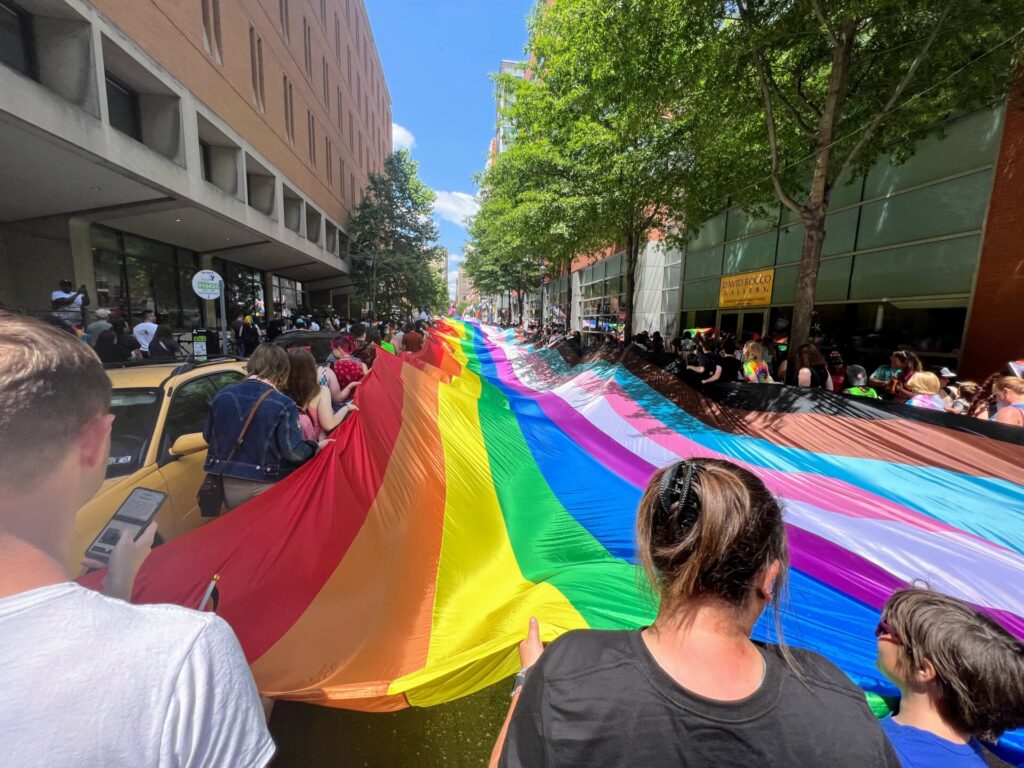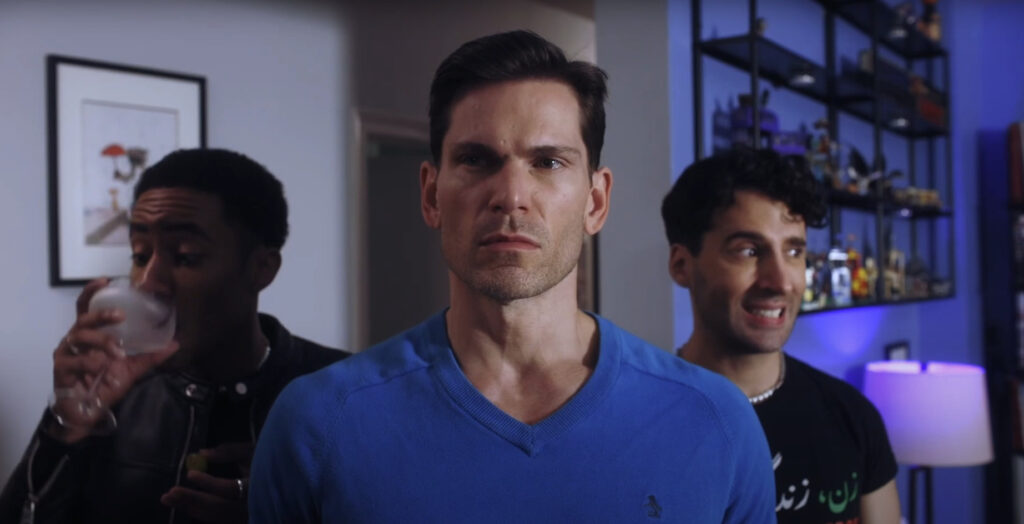Ten years after the landmark play The Laramie Project was produced, Moisés Kaufman and other members of the Tectonic Theater Project returned to Laramie, Wyoming to check in on what has transpired since the 1998 murder of gay college student Matthew Shepard.
In 1998, the murder of gay University of Wyoming college student Matthew Shepard sent shockwaves throughout the nation. Targeted because of his sexual orientation, the 21-year-old was robbed by two men, who subsequently drove their car to a remote, rural area and proceeded to pistol-whip and torture Shepard, tying him to a fence and leaving him to die. Still alive but in a coma, Shepard was discovered 18 hours later by a cyclist who mistook him for a scarecrow. He succumbed to his injuries six days later.
Following the brutal murder, New York City playwright Moisés Kaufman travelled with members of the Tectonic Theater Project to Laramie, Wyoming in order to interview residents of the sleepy western town where this horrific crime took place. Premiering in 2000, The Laramie Project was an ambitious play born out of hundreds of interviews conducted by the theatre company with inhabitants of the town, company members’ own journal entries, and published news reports. Ten years later, the same theater company returned to Laramie to conduct follow-up interviews with citizens featured in the first play, as well as with convicted murderers, Aaron McKinney and Russell Henderson. For GayFest!, a capable ensemble cast mounted an extremely powerful production of this essential update to Matthew Shepard’s story: The Laramie Project – Ten Years Later.
A minimal set, meant to suggest the power lines that punctuate the big open sky of Wyoming, serves as an evocative backdrop for this dense play where the cast of eight is required to portray dozens of different characters, interviewers and interviewees alike. With slight changes to costume and accent, the company manages to pull off the difficult task of differentiating between the myriad characters included in the play, from clueless students at the local college to Judy Shepard, Matthew’s advocate mother. Gripping through the last minute, the first act investigates how a 2004 20/20 report, which claimed that Shepard’s murder was not a hate crime but a robbery gone wrong among drug addicts, altered the local impression of the event. The second act touches on pro-LGBT strides in the Wyoming legislature, but the real meat of the show comes from the effective staging of the interviews with Shepard’s torturers. Informative and engaging, this emotionally charged material is worth revisiting, if not only as a reminder of how far we have come since 1998, and how far we still need to go.






